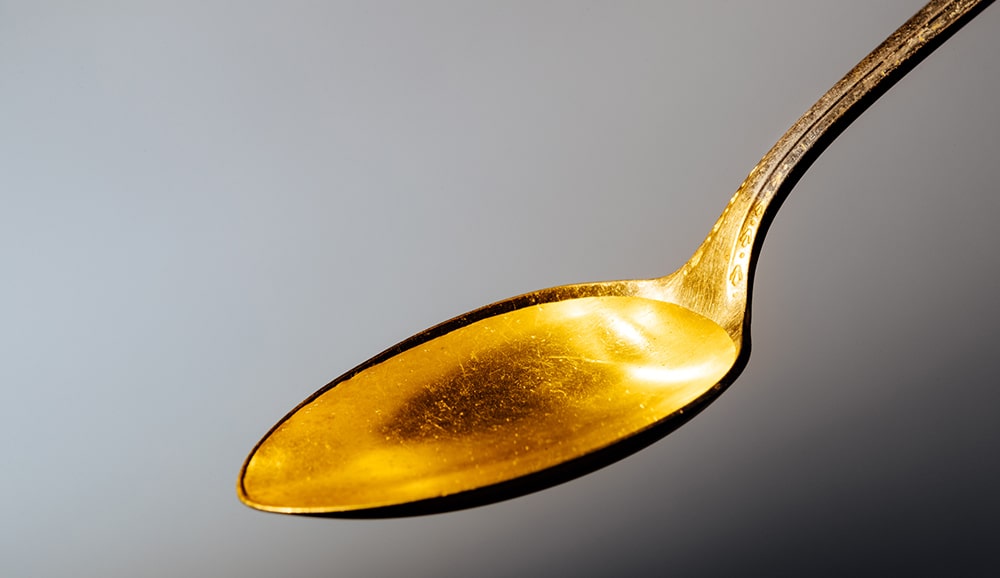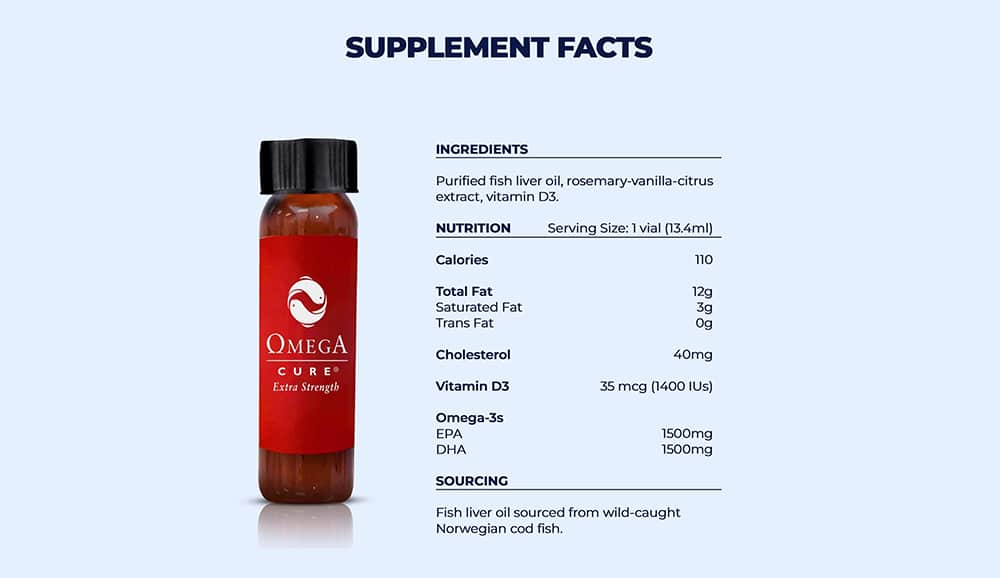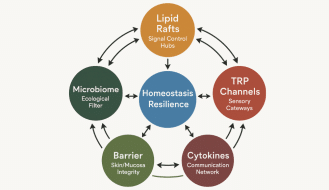Fish Oil vs. Cod Liver Oil: What’s The Difference?
Omega-3 fatty acids are essential for brain, joint, heart, and overall health, and fish oil and cod liver oil are two of the best ways to get these essential fatty acids. But how do these oils differ, and which one is best for you? Whether you’re looking to boost cognitive function, reduce inflammation, or just improve your overall health, knowing the key distinctions can guide you toward the right choice.
Why You Need Omega 3 Fatty Acids
Omega-3 fatty acids are essential for the healthy functioning of every cell in the body. Since our bodies can’t produce them naturally, we must get them through food or supplements. These fats are vital for a wide range of health benefits:
- Cognitive Function: Omega-3s, especially DHA, are critical for brain health. They support memory, focus, and overall cognitive performance while reducing the risk of neurodegenerative diseases (1).
- Fetal Health and Pregnancy: During pregnancy, omega-3s help with the development of a baby’s brain, eyes, and nervous system. They’re equally important for the mother’s health, reducing the risk of preeclampsia and other complications (1).
- Inflammation: Omega-3s have anti-inflammatory properties that combat chronic inflammation, which is linked to many diseases, including arthritis and metabolic disorders (1).
- Skin Health: These fatty acids improve skin hydration, elasticity, and barrier function, helping to reduce redness and dryness (1).
- Cardiovascular Health: Omega-3s can help reduce triglycerides, improve blood pressure, and lower the risk of heart disease (1).
What is the Difference Between Fish Oil and Cod Liver Oil?

The key difference between fish oil fatty acids and cod liver fatty acids lies in their source and nutrient composition.
Fish oil is a broader term that typically refers to oils extracted from the body of fatty fish like anchovies, mackerel, and herring. Cod liver oil supplements, on the other hand, are specifically derived from the liver of cod fish.
Sources
- Fish Oil: Fish body oil can come from the skin, flesh, fins, guts, and heads of species like mackerel, herring, tuna, and salmon. However, the most common type of fish oil on the market is derived from anchovies, herring, and mackerel. This specific type is called an 18:12 oil because it contains roughly 18% EPA and 12% DHA, the primary omega-3 fatty acids.
- Cod Liver Oil: Cod liver oil comes exclusively from the liver of cod fish. You may also encounter the term fish liver oil, which includes oils from the livers of similar species, but cod liver oil is the most well-known. Historically, cod liver oil has been used for centuries and was documented in medical texts as early as the 1700s.
Nutrient Profile and Amount of Omega 3s
Both fish oil and cod liver oil are excellent sources of omega-3 fatty acids, specifically EPA and DHA, but their nutrient compositions differ in notable ways.
Fish Oil
Fish oil typically contains a higher percentage of EPA and DHA, with about 30% omega-3 content per volume. This makes it a strong choice for those aiming to maximize omega-3 intake. However, most fish oil supplements come in capsule form, which often provides only small amounts of omega-3s per serving. For example, a single capsule usually contains just 300 mg of EPA and DHA combined, making it difficult to reach the therapeutic dose of 2000–3000 mg without swallowing 7 – 10 capsules daily.
Another factor to consider is quality. Many fish oils are harvested as byproducts of the animal feed industry, where raw material handling may not prioritize freshness. This can lead to higher oxidation levels, which compromise efficacy.
Cod Liver Oil
Cod liver oil contains slightly lower concentrations of EPA and DHA—around 20% combined—but offers unique benefits. It’s often consumed in liquid form, making it easier to achieve an effective dose of omega-3s. A single teaspoon of cod liver oil can deliver 900–1000 mg of EPA and DHA, which is significantly more efficient than typical capsules.
Beyond omega-3s, unpurified cod liver oil naturally contains vitamin A and vitamin D, which support vision, immune health, and bone strength (2). However, these vitamins are significantly reduced during the purification process, leading some manufacturers to add back these vitamins afterwards.
Despite its lower omega-3 concentration, cod liver oil is often fresher than many fish oils due to better sourcing and handling practices.
Cod Liver Oil and Fish Oil Benefits
The benefits of fish oil and cod liver oil depend heavily on both the quality of the product and the dose you’re taking. Without an effective amount of EPA and DHA, most people won’t see the benefits they’re hoping for—whether that’s managing blood pressure, supporting joint health, or lowering triglyceride levels.
Fish oil is primarily valued for its high concentration of EPA and DHA, which support:
- Brain function: Enhances cognitive health and may reduce the risk of neurodegenerative diseases (4).
- Joint health: Reduces symptoms of rheumatoid arthritis and other inflammatory conditions (5).
- Heart health: Helps reduce triglycerides, supports healthy blood pressure, and lowers inflammation (6).
In addition to EPA and DHA, a full-spectrum cod liver oil can also be a source of other nutrient cofactors and support the efficacy of fat-soluble vitamins.
The Importance of Dose and Quality
To get 3000 mg of EPA and DHA daily—needed for noticeable effects on inflammation, triglycerides, or joint discomfort in most adults—you’d typically need to take 10 regular capsules a day. This can make it challenging for people to get the benefits they’re looking for from capsules alone. Liquid formulations, whether fish oil or cod liver oil, often make it easier to achieve an effective dose.
Choosing a high-quality supplement is essential for both fish oil and cod liver oil. A 2022 study of 231 omega-3 products on the U.S. market found that only two contained at least 2000 mg of EPA/DHA per standard serving—and both were liquid formulations (3).
Cod Liver Oil vs. Fish Oil Supplements: Which One Should You Take?
Both cod liver oil and fish oil can be effective, but the choice depends on your health goals and the quality of the product.
When to Choose Fish Oil
Fish oil may be the better option if your primary goal is maximizing omega-3 intake. Its higher concentration of EPA and DHA makes it ideal for those targeting heart health, brain support, or joint care. Look for liquid fish oil options for easier dosing, as capsules usually don’t provide enough omega-3s in a single serving.
When to Choose Cod Liver Oil
Cod liver oil is a more comprehensive choice for those looking to supplement omega-3s. Some brands also include vitamin A and D and other nutrient cofactors. However, vitamin content can vary significantly between products, so it’s essential to check the supplement facts.
The Bottom Line: Make Sure You’re Getting Enough Omega 3 Fatty Acids

Not all omega-3 supplements are created equal. Choosing the right supplement is essential for reaping its full health benefits. Many low-quality products provide only small amounts of EPA and DHA, which may not be enough to support brain, heart, and joint health.
To make a real impact, focus on finding a supplement that delivers an effective dose and prioritizes freshness and quality. By choosing Omega Cure, you’re getting a supplement that’s both effective and enjoyable to take—one that helps you achieve the omega-3 levels you need for results.
References:
- Office of Dietary Supplements – Omega-3 Fatty Acids. ods.od.nih.gov. https://ods.od.nih.gov/factsheets/Omega3FattyAcids-Consumer/#h1
- Cod liver oil: Health benefits, facts and research. www.medicalnewstoday.com. Published February 5, 2018. https://www.medicalnewstoday.com/articles/270071
- Ward ED, Thomasson K, Fischer KR. Analysis of Omega-3 Fatty Acid Content in Fish Oil Products. Journal of Pharmacy Practice. Published online May 6, 2021:088307382110150. doi:https://doi.org/10.1177/08830738211015051
- Dighriri IM, Alsubaie AM, Hakami FM, et al. Effects of Omega-3 Polyunsaturated Fatty Acids on Brain Functions: A Systematic Review. Cureus. 2022;14(10). doi:https://doi.org/10.7759/cureus.30091
- Kuszewski JC, Wong RHX, Howe PRC. Fish oil supplementation reduces osteoarthritis-specific pain in older adults with overweight/obesity. Rheumatology Advances in Practice. 2020;4(2). doi:https://doi.org/10.1093/rap/rkaa036
- Liao J, Xiong Q, Yin Y, Ling Z, Chen S. The Effects of Fish Oil on Cardiovascular Diseases: Systematical Evaluation and Recent Advance. Frontiers in Cardiovascular Medicine. 2022;8:802306. doi:https://doi.org/10.3389/fcvm.2021.802306
Popular posts



Related posts






